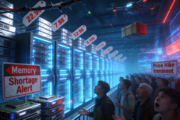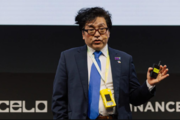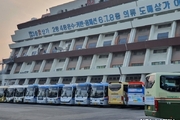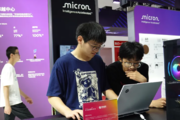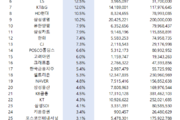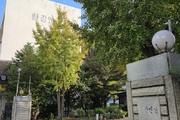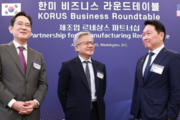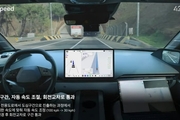
[News Space=Reporter seungwon lee] Hanyang Construction (CEO Heon-Wook Kim) saw its sales increase last year, but its operating profit and net profit decreased significantly, and its debt ratio increased, deteriorating both its profitability and financial soundness.
There is a significant risk of contingent liabilities such as PF guarantees, and potential risk factors include loans of 27.7 billion won for internal transactions with special related companies and five lawsuits with a lawsuit amount of 1.5 billion won. In addition, liquidity management has become more important due to a decrease in cash assets and an increase in long-term borrowings.
According to the Financial Supervisory Service's electronic disclosure system on the 14th, Hanyang Construction's sales in 2024 increased by 8.9% from the previous year (KRW 203 billion) to KRW 221.3 billion. Operating profit decreased by 64.4% from the previous year (KRW 4.6 billion) to KRW 1.6 billion. Net income also decreased by 43.7% from the previous year (KRW 6.5 billion) to KRW 3.6 billion.
The operating profit ratio was 0.7%, a significant decrease from the previous year (2.3%). Retained earnings increased 5.5% year-on-year to KRW 70.4 billion.
Selling and administrative expenses decreased by 4.7% to KRW 12.9 billion compared to the previous year (KRW 13.6 billion). By item, salaries were KRW 4.9 billion, retirement benefits KRW 900 million, commissions paid KRW 460 million, and advertising and publicity expenses KRW 6.94 million.
There were no separate dividend payment details confirmed for 2024. Undistributed retained earnings amounted to KRW 68.9 billion, an increase from the previous year (KRW 65.2 billion).
As of the end of 2024, total liabilities are 57.4 billion won, and total capital is 74.2 billion won. The debt ratio is 77.4%, up from 44.5% the previous year. The current ratio is a good level at about 263.6% (current assets 118.3 billion won/current liabilities 44.9 billion won).
Cash and cash equivalents decreased by more than half from the previous year (KRW 10.3 billion) to KRW 4.7 billion. Short-term borrowings were not separately recorded, and long-term borrowings increased significantly to KRW 12 billion, four times more than the previous year (KRW 3 billion).
Intangible assets were not separately accounted for, and there are no payment records such as royalties.
Sales with special related parties amounted to 6.55 billion 0.3 million won, and the balance of loans amounted to 27.73 billion 0.18 million won. Interest income amounted to 105.1 million won. The scale of financial transactions with special related parties is large, and there is a constant risk of loan recovery.
Five lawsuits with a total amount of 1.5 billion won in legal disputes stand out.
As of the end of 2024, Hanyang Construction is pending as a defendant in four lawsuits for damages and one lawsuit for construction costs (KRW 641 million). The total amount of the lawsuits amounts to KRW 1.52 billion.
Although the salaries and retirement benefits paid to key executives were not disclosed separately, the retirement benefit reserve liabilities increased to KRW 5,017,300,000 compared to the previous year (KRW 4,373,300,000).
Seohyun Accounting Corporation pointed out in its audit report, "As a special matter, the balance of PF (project financing) guarantees such as bridge loans, ABLs, and main PFs amounts to KRW 239.1 billion, concentrated in regional projects such as Ulsan, Changwon, and Yangju, and the guarantee agreement for interim loans for purchasers of subcontracted funds amounts to KRW 490 billion, the agreed amount is KRW 677.5 billion, and the loan balance is KRW 424.3 billion."
This could pose a significant risk to Hanyang Construction's financial structure, as the company could shoulder a large financial burden if low sales rates, economic downturns, or sluggish business performances become a reality.
In other words, a project financing (PF) guarantee is a guarantee provided by the construction company for the loan when the project operator (construction company) raises project funds from a financial institution. If the project does not proceed normally or sales are poor, the construction company must bear some or all of the responsibility for repaying the principal and interest of the loan.
Also, the interim payment loan guarantee for apartments is a structure in which the construction company guarantees the repayment of the loan when the apartment purchaser borrows the interim payment from a financial institution. If the purchaser fails to repay the interim payment, the construction company must repay it instead. This also carries the risk that the company will have to bear the burden directly if the purchaser fails to repay the loan due to low sales rates or economic recession.
Meanwhile, Hanyang Construction is headquartered in Hanam-si, Gyeonggi-do, and is engaged in various construction projects such as civil engineering, architecture, and landscaping. It was established as Yeosan Construction Co., Ltd. on January 9, 1988, and changed its name to Hanyang Housing Co., Ltd. on September 29, 2006, and changed its name to Hanyang Construction Co., Ltd. on March 31, 2010. Its capital is 3.45 billion won, and its share structure is Yeosan Holdings with 50.54%, Chairman Lee Woo-sik with 30.46%, and others with 19%.
Hanyang Construction has the parent company Yeosan Holdings Co., Ltd., a subsidiary company HY Hwagok Co., Ltd., an affiliate company Harborview 548 Co., Ltd., and other special related parties such as Horizon Co., Ltd., Solarvision Co., Ltd., S-Power Co., Ltd., Hanyang Living & Design Co., Ltd., The First Hanyang Co., Ltd., and Yeosan Asset Co., Ltd.
According to the results of the '2024 Construction Company Construction Capability Evaluation' released by the Ministry of Land, Infrastructure and Transport on July 31, 2024, Hanyang Co., Ltd. ranked 37th and Hanyang Construction Co., Ltd. ranked 95th.
Hanyang Corporation's Chairman Lee Ki-seung has implicitly permitted his younger brother, Hanyang Construction's Chairman Lee Woo-sik, to use the highly popular name 'Hanyang Sujain.' However, it was revealed that Hanyang Construction had used the Hanyang Sujain brand without Hanyang Corporation's permission, and the two companies came close to a legal battle.
In addition, suspicions were raised about fraudulent sales of apartments by Hanyang Construction, a subsidiary company with significantly lower construction capabilities, as the difference in construction companies was not clearly notified to residents of the apartments.







